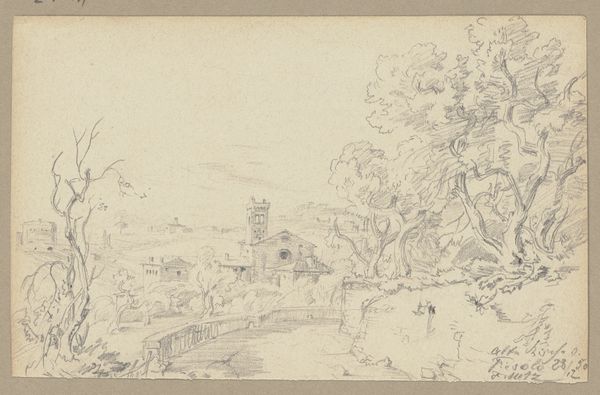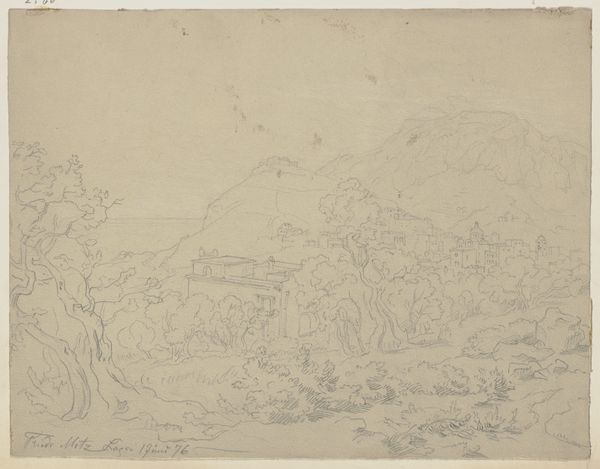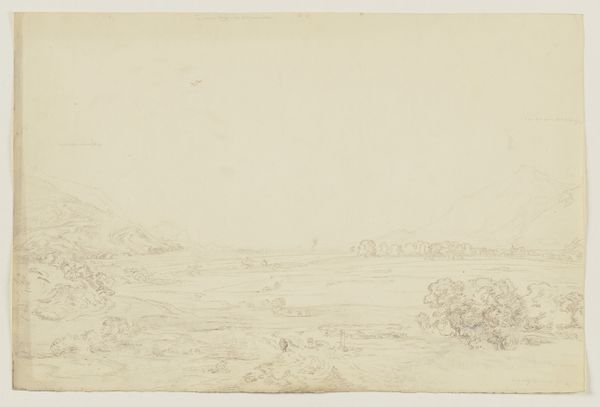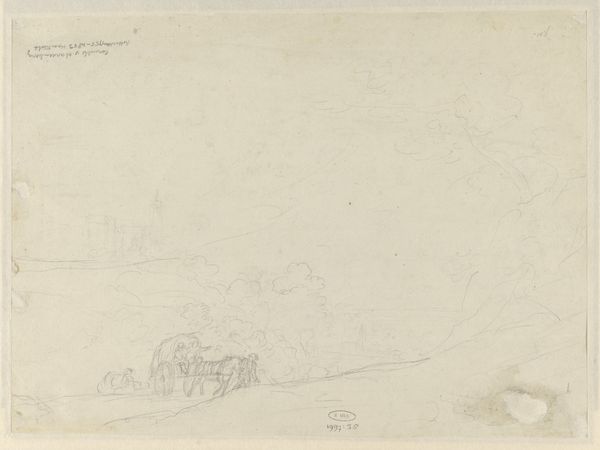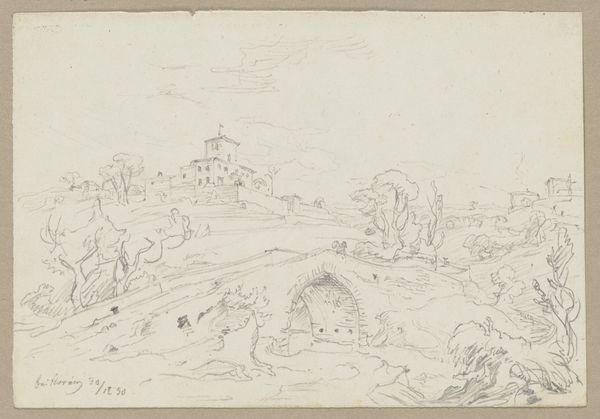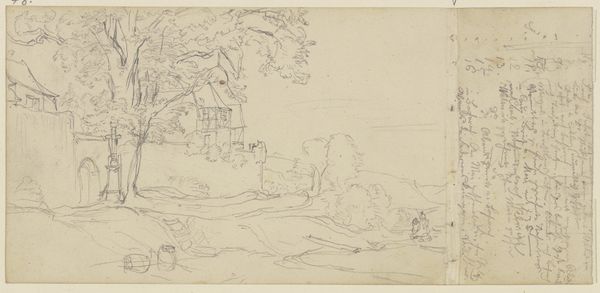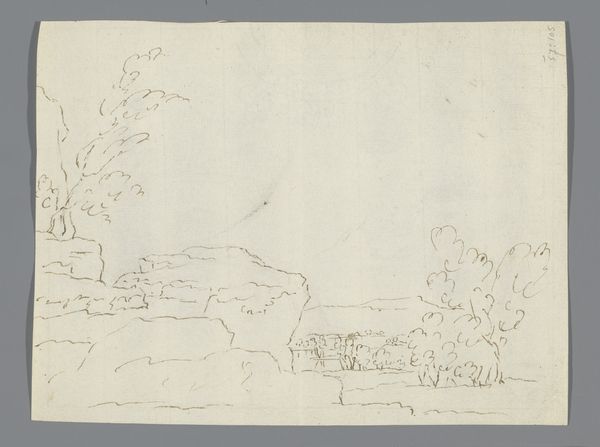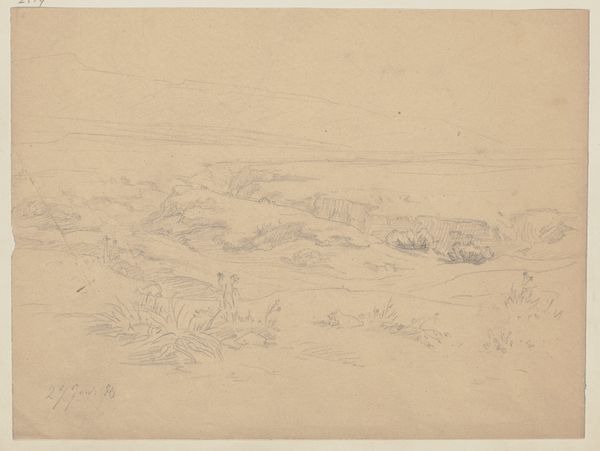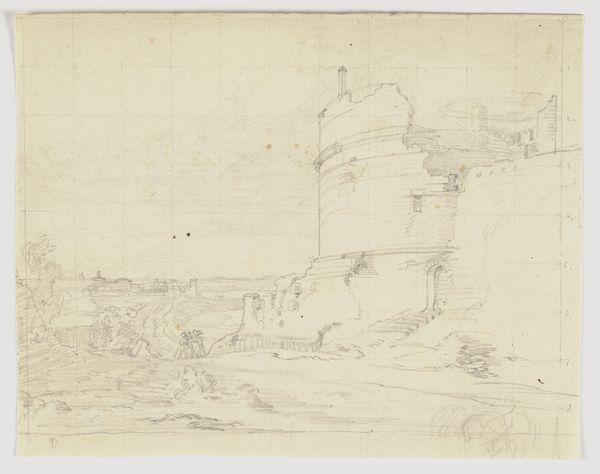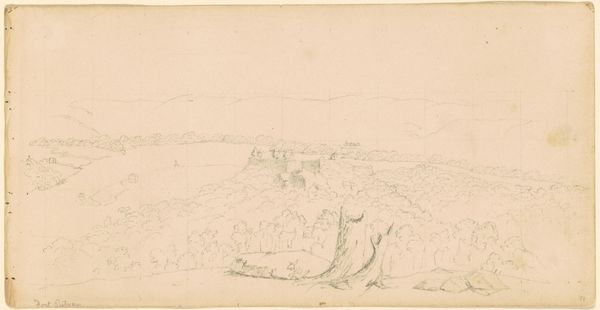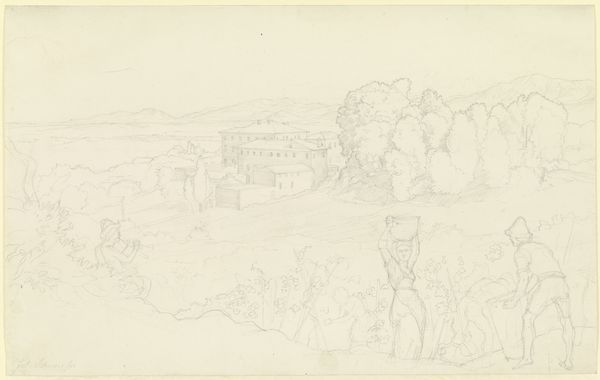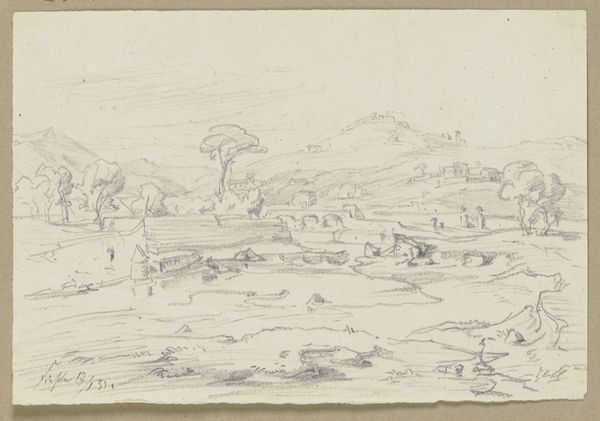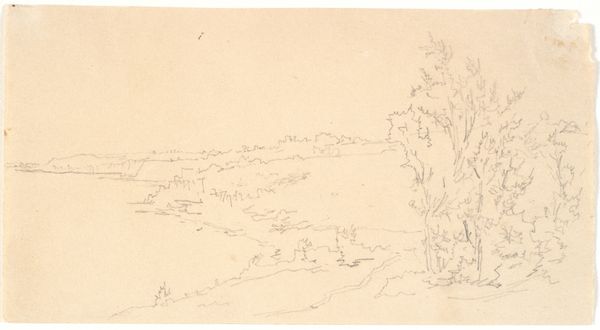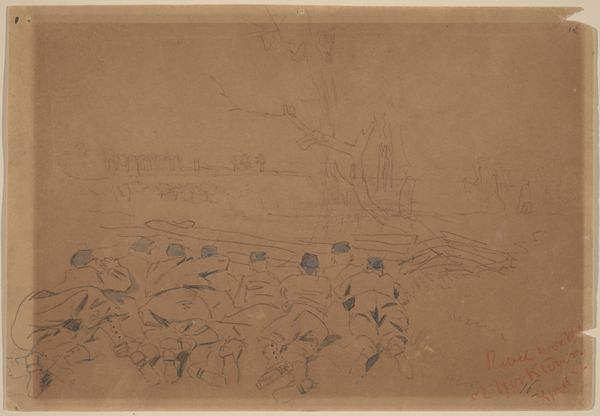
drawing, paper, dry-media, pencil, architecture
#
drawing
#
landscape
#
paper
#
dry-media
#
pencil
#
academic-art
#
architecture
Copyright: Public Domain
Curator: Friedrich Metz's "On Capri," dated 2 June 1875, presents a detailed landscape sketch executed in pencil on paper. The scene feels light, almost airy, doesn’t it? Editor: Ethereal is the word I'd use. Looking at the lines and how faintly he renders form, I immediately think about the inherent labor of drawing, but it seems like he wants to minimize that. The light pencil almost disappears into the paper. Curator: Absolutely, and there's an interesting tension. Metz employs academic techniques – precise rendering of architecture, perspectival accuracy – but he seemingly uses them to almost...dematerialize reality. Look at those mountain lines! Like whispered echoes. Editor: It's curious, this choice of such delicate, almost industrial materials like pencil and paper to portray what was becoming a popular, even manufactured, tourist destination. Capri, by 1875, was hardly an untouched idyll. I wonder if he considered the carbon footprint? Curator: That’s a darkly comic thought. But perhaps the faintness speaks to a disappearing ideal, a fragile beauty facing inevitable change, even under the pressure of commodification. I detect that underlying melancholy, even if the artist might have preferred to believe in purely academic, aesthetic ideals. Editor: Or maybe it was purely about the economy. Pencil sketches are fast and portable, suitable for travel. Capri’s always been a resource, whether mined for limestone, idealized for paintings, or consumed as scenery. What mark does the artist leave? Curator: True, a quick memento for the journey. Still, there's a sense of something beyond documentation. The way the light catches those architectural facades—it is almost as if he captures the fleeting moment that inspired wonder. Almost magical. Editor: Magic created by relatively mundane means, if you think about it. Metz probably sourced his pencils from some factory in Nuremberg and bought his paper in bulk. Then resold as a vision. It all feels a bit staged if you dwell on those details, on those systems of circulation. Curator: That tension, between raw material and refined artifice, really resonates in this piece, doesn’t it? We feel both the quick immediacy of a travel sketch, and the weight of centuries of aesthetic tradition informing every line. Editor: A fragile testament, made to disappear as easily as it appears. Something precious about that, I think.
Comments
No comments
Be the first to comment and join the conversation on the ultimate creative platform.
